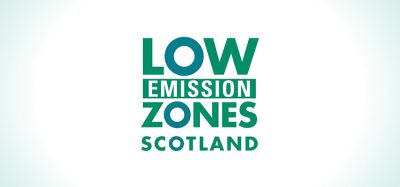European Bus and Coach Passenger Rights: experiences from the first three years
- Like
- Digg
- Del
- Tumblr
- VKontakte
- Buffer
- Love This
- Odnoklassniki
- Meneame
- Blogger
- Amazon
- Yahoo Mail
- Gmail
- AOL
- Newsvine
- HackerNews
- Evernote
- MySpace
- Mail.ru
- Viadeo
- Line
- Comments
- Yummly
- SMS
- Viber
- Telegram
- Subscribe
- Skype
- Facebook Messenger
- Kakao
- LiveJournal
- Yammer
- Edgar
- Fintel
- Mix
- Instapaper
- Copy Link
Posted: 19 October 2016 | Andras Mogyoro - European Commission | No comments yet
Three years after the EU Regulation on Bus and Coach Passenger Rights came into force, the European Commission (EC) published a report about the first experiences of passengers, national authorities and the industry. Andras Mogyoro, Legal Officer at the Passenger Rights Unit of the EC, presents this report in the following article.


Bus and coach transport is the predominant public transport mode in several Member States of the EU. Even in Member States where its market share is less significant, it plays a crucial role as buses and coaches reach communities in remote areas that are not served by any other public transport modes. They are also the preferred choice for households that don’t possess private cars and cannot afford more expensive travel modes. The liberalisation of the international coach market more than a decade ago and the recent liberalisation of the domestic coach markets in several Member States (including Italy, Germany and France) has created steady growth, particularly in the long-distance coach sector3.
Harmonisation of passenger rights in Europe
The Bus and Coach Passenger Rights Regulation4 (the Regulation) was adopted in order to extend EU passenger rights to all modes of collective transport. Since March 2013, when it became applicable, passengers travelling by air, rail, waterborne means and bus/coach transport in Europe enjoy a guaranteed level of minimum protection.
Harmonisation of passenger rights mode-by-mode (taking into consideration the specific characteristics of each mode) in the EU helps to create a level playing-field for operators within and across the modes. The principles that govern European passenger rights are common for the four transport modes: non-discrimination, accurate, timely and accessible information and immediate and proportionate assistance in case of transport disruptions. At the same time, each modal regulation contains several provisions that reflect the specific features of the mode in question. One specific feature of bus and coach transport is that bus and coach operators share the same – often congested – transport infrastructure with other users, therefore respecting schedules is often beyond their control. Consequently, unlike in the case of other transport modes, delay at arrival does not trigger compensation.
The scope and content of the Regulation
The Regulation applies primarily to regular, scheduled bus and coach services where the boarding or alighting point is situated in the territory of an EU Member State; thus it applies both to domestic and cross-border services. A limited number of provisions mostly related to assistance and compensation in case of road accidents also apply to occasional services, where the group of passengers is constituted on the initiative of the customers or the carrier.
The EU legislator took account of the different needs and expectations of passengers using urban or regional buses and passengers travelling with long-distance coaches. Short distance services are usually purely domestic services; users do not require reservation and often travel with monthly or yearly passes. They have a much higher frequency than long-distance services, therefore the negative effects of cancellations or long delays are more limited. A significant number of these services are operated on the basis of public service obligation contracts where the contracting authority imposes quality requirements related to passenger rights.
As a consequence the EU legislator granted different rights for passengers using short and long-distance services.
Firstly, every passenger benefits from certain core rights. Discriminatory fares or other discriminatory transport conditions are prohibited. People with disabilities or reduced mobility have a right to bus and coach transport at no additional cost: carriers can only refuse to transport passengers with disabilities if carrying them is physically impossible given the design of the vehicle; the bus stop or the terminal infrastructure; or if doing so would breach health and safety requirements. The core rights include the requirement that passengers must receive minimum information about their journey and about their rights; carriers must implement a complaint handling mechanism; and EU Member States must designate independent national authorities that have the mandate to enforce the Regulation and, where appropriate, impose penalties.
Secondly, passengers travelling on regular services where the scheduled distance of the service is 250km or more also benefit from additional rights; most importantly, the right to reimbursement of the full ticket price, or rerouting in the case of a cancellation or a long delay at departure, and adequate assistance in the case of a cancellation or a long delay (in the form of snacks, meals, refreshments, or – if necessary – accommodation, depending on the duration of the transport disruption). In addition, they are entitled to a compensation amounting to 50% of the ticket price if the carrier fails to offer the passenger the choice between reimbursement of the ticket price and rerouting when there has been a cancellation or long delay at departure. Persons with disability or reduced mobility are entitled to specific assistance both at bus terminals and on-board buses and coaches at no additional costs.
Member States may grant exemptions from the non-core rights to regular services that are purely domestic until February 2017, which may be renewed once for another four years. 12 Member States (Croatia, the Czech Republic, Estonia, Greece, Hungary, Latvia, the Netherlands, Portugal, Romania, Slovakia, Slovenia and the United Kingdom) are currently applying exemptions of this type.
Member States may also grant exemptions from the application of the entire Regulation to regular services which are operated partially outside the EU until February 2017, which may also be renewed once for another four years. Thirteen Member States (Austria, Croatia, Estonia, Finland, Germany, Greece, Hungary, Italy, Latvia, the Netherlands, Slovakia, Slovenia and the United Kingdom) are currently applying exemptions of this type.
The first experiences about the Regulation
The EC used the activity reports that the national authorities in charge of the enforcement of the Regulation were obliged to publish in 2015. It conducted a stakeholder consultation for bodies representing passengers and the industry at EU level in order to gather information for the ex-post assessment of the operation of the Regulation.
The EC noted that most Member States did not prepare in a timely manner for the application of the Regulation. Some of them only designated the authorities in charge of the Regulation’s enforcement and empowered them to sanction operators that breach the Regulation three years after the Regulation came into force.
The representatives of passengers and the industry agreed that two factors have had a major impact on the operation of the Regulation.
Firstly, the lack of suitable bus and coach terminals in several EU Member States hinders the development of bus and coach transport: modern, accessible and safe terminals connected with other transport modes could help to attract new users and convince citizens to opt for bus and coach transport instead of using private cars. In addition, the existence of such terminals could raise the quality of service as terminal operators can give passengers easier access to information about the services and about passenger rights; terminal staff can provide passengers with disabilities with the assistance they need; and passengers can be better assisted when there are transport disruptions.
Secondly, the Regulation did not introduce new accessibility requirements for buses, coaches and terminals; therefore, it did not contribute significantly to improving the accessibility of vehicles and the transport infrastructure (bus stops and terminals) for passengers with disabilities or reduced mobility. In order to make bus and coach transport accessible for these passengers, both the vehicles and the terminals must be accessible. The measures introduced by several Member States – under which operators will in the future be required to use only fleets that can carry passengers with disabilities or reduced mobility – will have only limited results if the transport infrastructure remains inadequate.
On the other hand, there was a clear division between organisations representing industry and passenger organisations as to the impact of the Regulation. The organisations representing carriers felt that the scope of the Regulation reflected the optimal balance between the carriers’ obligations and passenger rights, taking the specific constraints of the sector into account, and given the necessary level of flexibility.
Organisations representing passengers regretted that most provisions contained in the Regulation applied only to regular services with a scheduled distance of 250km or longer. They argued that the threshold to differentiate between long-distance services and short-distance services should be much lower, as currently the overwhelming majority of regular bus and coach journeys are only subject to the core provisions of the Regulation. Passengers’ organisations also criticised Member States for granting too many exemptions, which deprives passengers of the full enjoyment of their rights.
The EC has not identified any deliberate or serious breaches of the Regulation since all Member States took the necessary measures to enforce it.
The number of passenger complaints submitted to carriers is not available; the number of complaints submitted to the national authorities is very limited. The EC considers that the low number of complaints is partly due to the fact that the Regulation is relatively recent and citizens are not sufficiently aware of it and also because in some Member States there are not yet fast and inexpensive dispute resolution mechanisms available to redress passenger rights.
The EC also noted that the approach taken by the national authorities enforcing the Regulation varies widely. While some are very proactive in informing passengers about their rights and monitoring the Regulation’s application, others do little beyond handling complaints.
Conclusion
The European Commission’s report concludes that in the light of the limited experience regarding the application of the Regulation to date there is no justification for amending it.
The national authorities and stakeholders agree that several of the obstacles that are preventing passengers from enjoying their rights can be removed by applying the Regulation more effectively.
In order to increase passengers’ awareness about their rights, the EC has launched a new campaign focusing primarily on social media, inviting national authorities and the industry to combine their efforts and launch similar campaigns at their level.
In the report the EC recommends to those Member States that currently grant exemptions from the Regulation that they review whether it is necessary to continue these exemptions. For example, France granted exemptions for domestic services and services operated partially in third countries when the Regulation became applicable, but then repealed these exemptions without experiencing any negative consequences.
Finally, the EC encourages national and local authorities, as well as private investors, to provide multi-modal connections of bus and coach terminals to other transport modes, in order to ensure an interoperable public transport service. It also expounds the value of refurbishing existing terminals or building new terminals that are fully accessible for persons with disability or reduced mobility. Such actions might be eligible for financial support from different EU funds.


References
- To download the full report, please visit: https://ec.europa.eu/transparency/regdoc/rep/1/2016/EN/1-2016-619-EN-F1-1.PDF
- The information and views set out in this article are those of the author and do not necessarily reflect the official position of the European Commission
- For further market information about European coach transport, please visit the Comprehensive Study on Passenger Transport by Coach in Europe, published by the European Commission in April 2016: http://ec.europa.eu/transport/modes/road/studies/doc/2016-04-passenger-transport-by-coach-in-europe.pdf
- Regulation (EU) No 181/2011 concerning the rights of passengers in bus and coach transport.
Biography


Issue
Issue 5 2016
Related modes
Bus & Coach
Related organisations
European Commission
Related people
Andras Mogyoro








